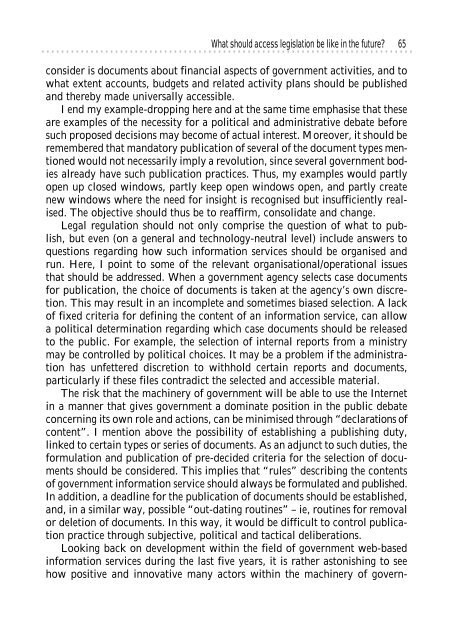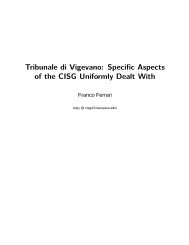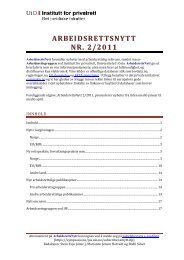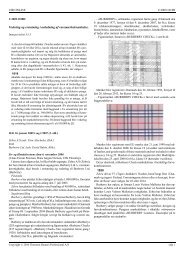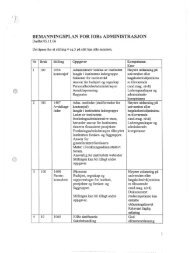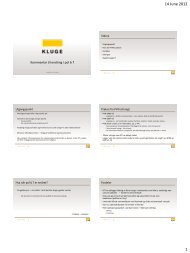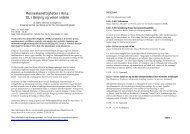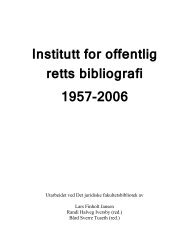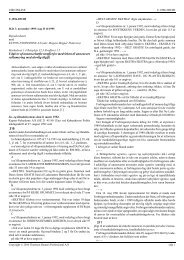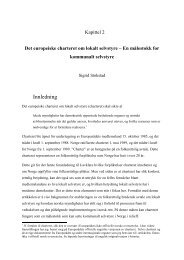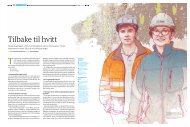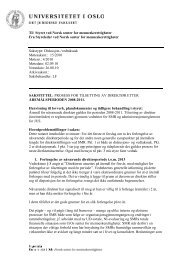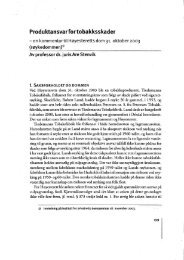Lee A. Bygrave (red.) YULEX 2002 - Universitetet i Oslo
Lee A. Bygrave (red.) YULEX 2002 - Universitetet i Oslo
Lee A. Bygrave (red.) YULEX 2002 - Universitetet i Oslo
You also want an ePaper? Increase the reach of your titles
YUMPU automatically turns print PDFs into web optimized ePapers that Google loves.
............................................................................<br />
What should access legislation be like in the future? 65<br />
consider is documents about financial aspects of government activities, and to<br />
what extent accounts, budgets and related activity plans should be published<br />
and thereby made universally accessible.<br />
I end my example-dropping here and at the same time emphasise that these<br />
are examples of the necessity for a political and administrative debate before<br />
such proposed decisions may become of actual interest. Moreover, it should be<br />
remembe<strong>red</strong> that mandatory publication of several of the document types mentioned<br />
would not necessarily imply a revolution, since several government bodies<br />
already have such publication practices. Thus, my examples would partly<br />
open up closed windows, partly keep open windows open, and partly create<br />
new windows where the need for insight is recognised but insufficiently realised.<br />
The objective should thus be to reaffirm, consolidate and change.<br />
Legal regulation should not only comprise the question of what to publish,<br />
but even (on a general and technology-neutral level) include answers to<br />
questions regarding how such information services should be organised and<br />
run. Here, I point to some of the relevant organisational/operational issues<br />
that should be addressed. When a government agency selects case documents<br />
for publication, the choice of documents is taken at the agency’s own discretion.<br />
This may result in an incomplete and sometimes biased selection. A lack<br />
of fixed criteria for defining the content of an information service, can allow<br />
a political determination regarding which case documents should be released<br />
to the public. For example, the selection of internal reports from a ministry<br />
may be controlled by political choices. It may be a problem if the administration<br />
has unfette<strong>red</strong> discretion to withhold certain reports and documents,<br />
particularly if these files contradict the selected and accessible material.<br />
The risk that the machinery of government will be able to use the Internet<br />
in a manner that gives government a dominate position in the public debate<br />
concerning its own role and actions, can be minimised through “declarations of<br />
content”. I mention above the possibility of establishing a publishing duty,<br />
linked to certain types or series of documents. As an adjunct to such duties, the<br />
formulation and publication of pre-decided criteria for the selection of documents<br />
should be conside<strong>red</strong>. This implies that “rules” describing the contents<br />
of government information service should always be formulated and published.<br />
In addition, a deadline for the publication of documents should be established,<br />
and, in a similar way, possible “out-dating routines” – ie, routines for removal<br />
or deletion of documents. In this way, it would be difficult to control publication<br />
practice through subjective, political and tactical deliberations.<br />
Looking back on development within the field of government web-based<br />
information services during the last five years, it is rather astonishing to see<br />
how positive and innovative many actors within the machinery of govern-


